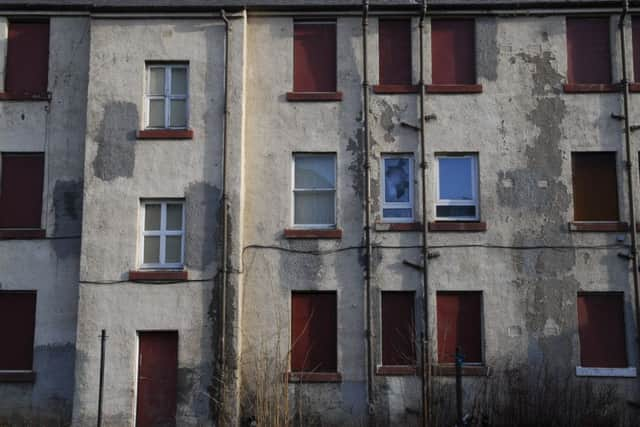Young and educated are Scotland’s new poor


The scarce jobs market and low pay for those in work, as well as the rising cost of keeping a home, means under-30s now make up the biggest share of those experiencing poverty in Scotland.
This is despite them being better educated and having better qualifications than previous generations.
Advertisement
Hide AdAdvertisement
Hide AdHowever, poverty levels for children and pensioners have fallen since 2003, according to a report by the New Policy Institute (NPI) for the Joseph Rowntree Foundation (JRF).
Around one in every eight under-25s is unemployed, twice as high as any other age group, the report, entitled Monitoring Poverty and Social Exclusion in Scotland 2015, found.
Julia Unwin, chief executive of the JRF, said: “Falls in child and pensioner poverty over the past decade in Scotland show that poverty can be reduced.
“But sustained action must be taken to stop a lack of high-quality work, and a shortage of affordable homes from trapping a generation of young people in poverty.
“All of us in government and local government, as well as employers, housing providers and the NHS, need a shared focus to alleviate the impacts of poverty across all age groups.”
There are also persistently high levels of disadvantage in health, education and work.
Almost half (43 per cent) of those of people in poverty live in households where someone works, showing that work by itself is not an adequate route out of poverty.
The report also warned that low-paid Scots have never been better qualified.
Advertisement
Hide AdAdvertisement
Hide AdIt said: “While not all low-paid employees are in poverty, neither are all those in in-work poverty necessarily low paid. This points to a further problem for young adults: being better qualified is less of a guarantee of better-paid work than in the past.”
The last ten years has also seen a shift in housing patterns, including more private renters who are spending a quarter of their income on housing, against 18 per cent of social renters and 11 per cent for owner-occupiers with a mortgage.
Scottish Liberal Democrat housing spokesman Jim Hume MSP said: “The changing nature of housing means that so many more young people are living in private rented accommodation.
“If we are to build a fairer society we must ensure that the private rented sector is fair, which is why I’ve backed Shelter Scotland’s campaign to make renting right.”
FOLLOW US
SCOTSMAN TABLET AND MOBILE APPS